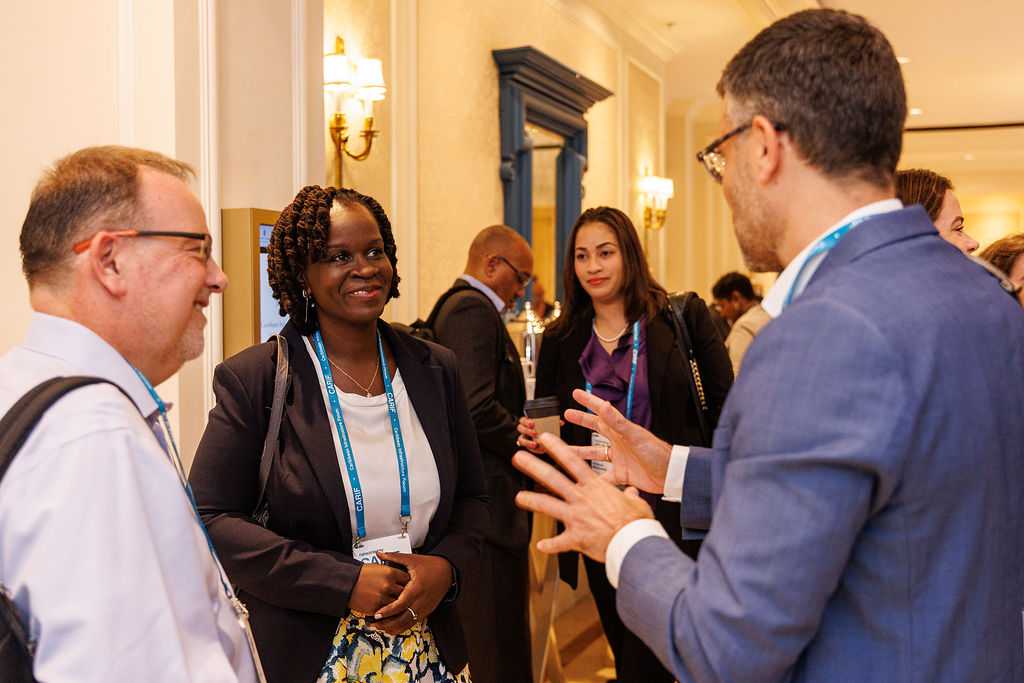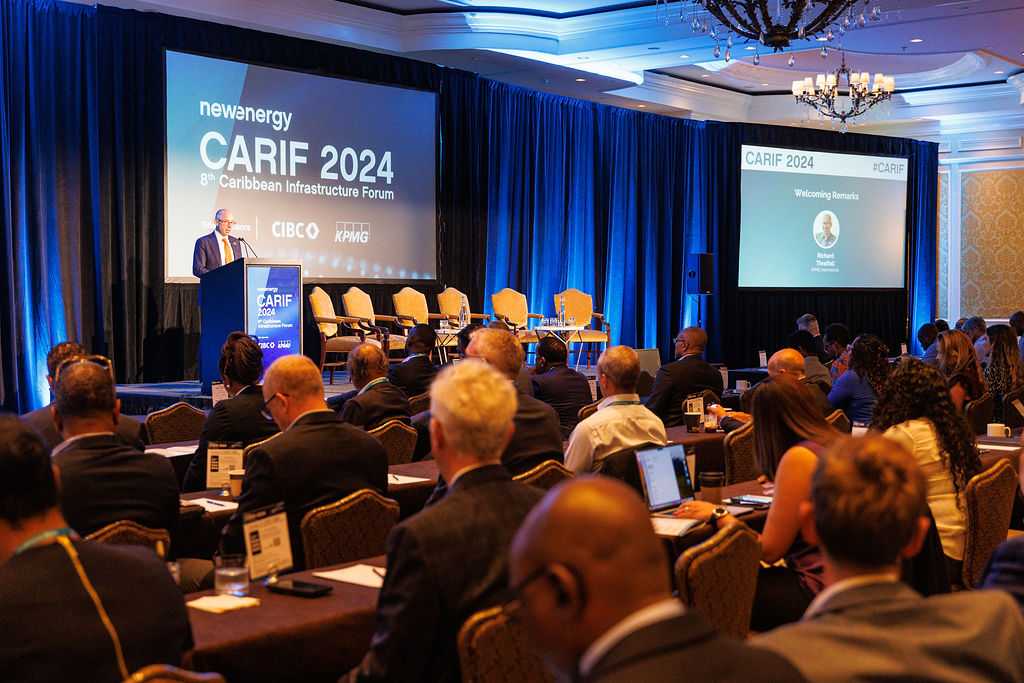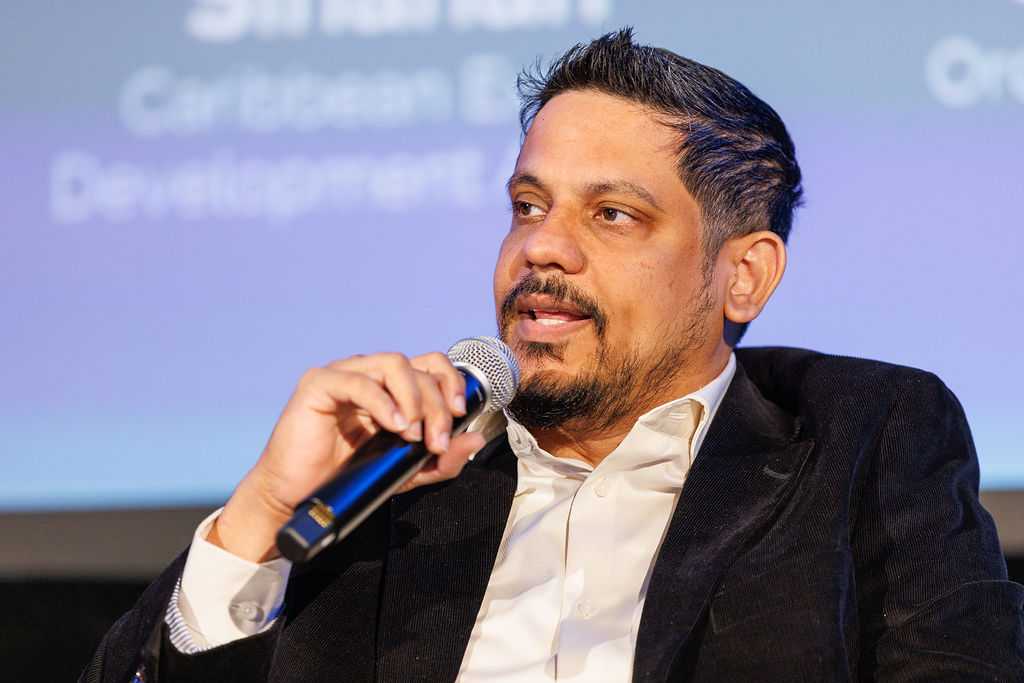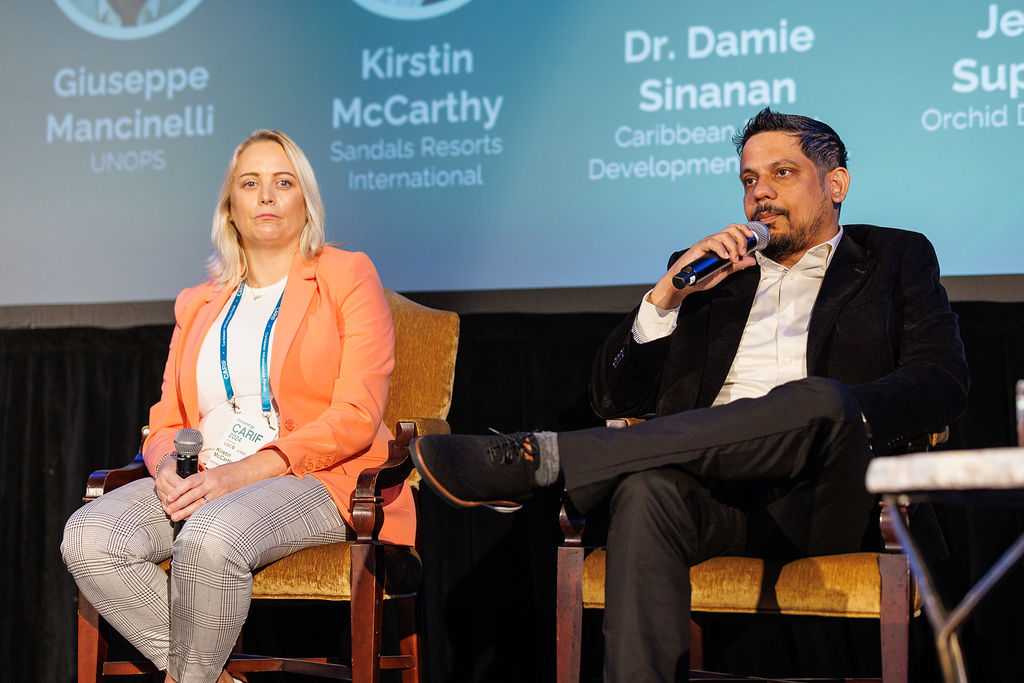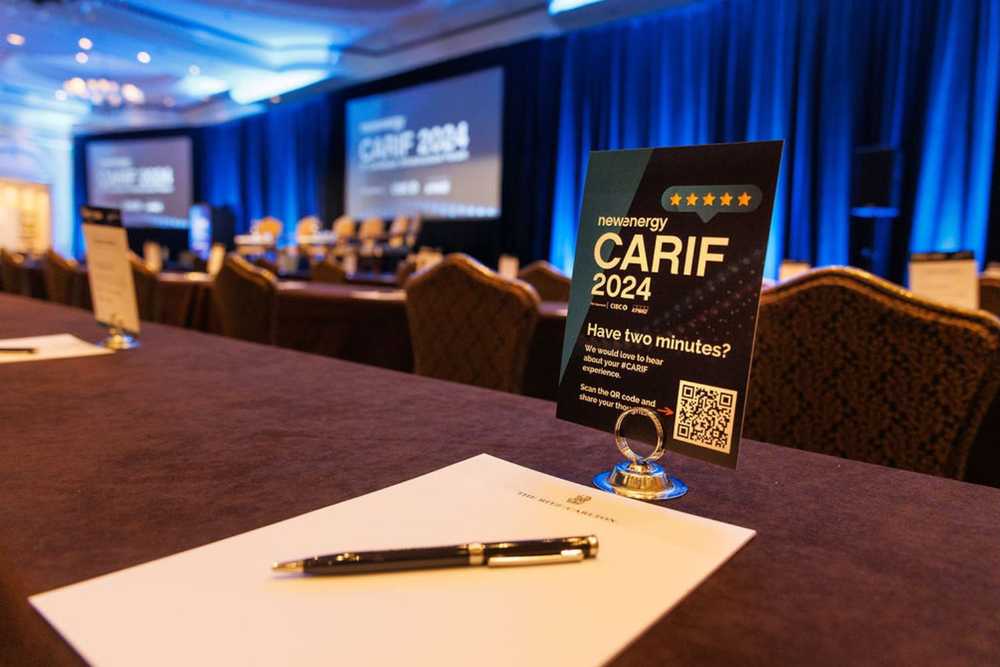Sustainable development is not just a buzzword in the Caribbean but a critical path toward securing the region’s future. As climate change intensifies, the need for sustainable practices has never been more urgent. From rising sea levels to increased hurricane activity, the Caribbean faces unique environmental and economic challenges that necessitate significant investments in sustainable industries and infrastructure.
This week I attended the Caribbean Infrastructure Forum (CARIF) 2024 in Miami hosted by New Energy Events, CIBC and KPMG. One of the most anticipated discussions was the panel titled ‘Sustainable Development: How Does Investment in Sustainability Translate into Economic Wins for the Private Sector?’. The panel featured distinguished leaders, including our Executive Director, Dr. Damie Sinanan, alongside representatives from the United Nations as well as private sector business such as Sandals Resorts. The session was moderated by CIBC’s Executive Director for Investment Banking, Gillian Charles-Gollop. The discussion highlighted how sustainability investments can yield substantial economic benefits for businesses and the region at large.
The Case for Sustainable Development
The Caribbean region is highly vulnerable to climate change, making sustainable development essential for both survival and growth. Climate-induced threats such as rising temperatures, sea level rise, and extreme weather events like hurricanes are already causing damage to infrastructure and the economy. As highlighted in the panel, Gillian Charles-Gollop of CIBC noted that sectors such as water, sanitation, and energy infrastructure will require significant investment—up to $2.2 trillion by 2030—to meet the United Nations Sustainable Development Goals (SDGs).
Beyond environmental resilience, sustainable practices offer a critical opportunity for economic diversification. The Caribbean’s heavy reliance on tourism (which contributes as much as 32% of GDP in some islands) makes its economy particularly vulnerable to global shocks. Investing in sectors such as renewable energy, sustainable agriculture, and circular industries can help mitigate these risks and promote economic stability.
Economic Wins for the Private Sector
During the discussion Dr. Sinanan emphasized that investments in green technologies and climate resilience are not only vital for environmental protection but also for boosting economic performance. According to a study he cited, investment in green technologies could create over 400,000 jobs in the Caribbean by 2030. For the private sector, sustainable investments offer direct benefits, including cost savings through improved efficiency, reduced carbon footprints, and enhanced competitiveness.
For example, Sandals Resorts International, represented by Kirstin McCarthy, has integrated sustainability into its core operations. McCarthy shared how the company has managed to achieve long-term savings by making their resorts more energy-efficient and reducing their water usage. She emphasized that their approach – “building better with less” – not only reduces environmental impact but also increases profitability. Sandals’ holistic strategy, where sustainability is embedded in all aspects of their operations, is a model other businesses can follow.
Public-Private Partnerships: A Key Driver of Progress
The panelists agreed that the path to sustainable development in the Caribbean requires collaboration between the public and private sectors. Giuseppe Mancinelli from the United Nations Office for Project Services (UNOPS) underlined the importance of infrastructure investment in achieving SDGs. He emphasized that resilient infrastructure, which accounts for 80% of greenhouse gas emissions and 90% of adaptation costs, plays a central role in reducing climate vulnerability while fostering economic growth.
Moreover, Jeremy Superfine, a developer responsible for Cricket Square in the Cayman Islands, pointed out that the public sector must create a regulatory environment conducive to private sector investment in sustainability. He suggested that clear rules and policies, coupled with financial incentives, are critical to motivating businesses to invest in green technologies and resilient infrastructure.
Conclusion: Building a Sustainable Future Together
In conclusion, the panel at CARIF2024 highlighted that investing in sustainability is not only a moral imperative but also an economic necessity for the Caribbean. As Dr. Sinanan aptly summarized, these investments offer practical, tangible benefits, from job creation to cost savings and long-term economic resilience. For the region to fully capitalize on the economic opportunities of sustainable development, collaboration between the public and private sectors is essential, as is the need for clear regulatory frameworks and forward-thinking policies. By taking bold steps today, the Caribbean can build a more resilient, diversified, and prosperous future that benefits both people and the planet.
